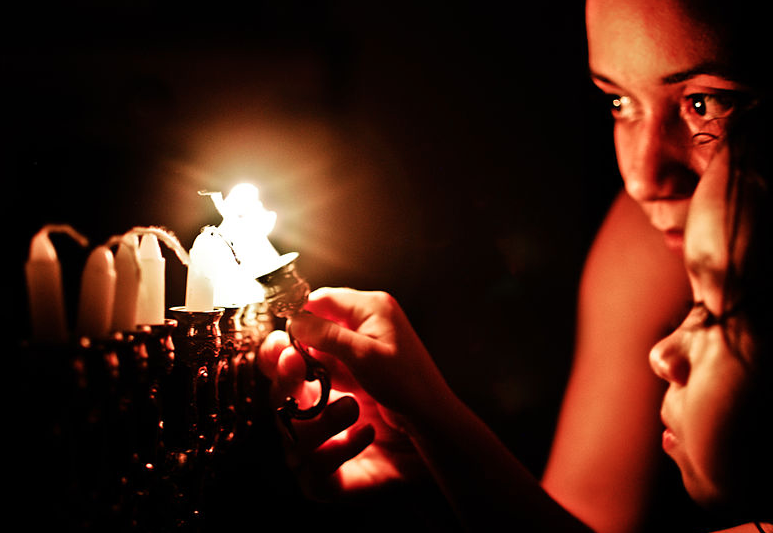Written by Sharona Kaplan, Rebbetzin for Jewish Learning Initiative on Campus.
What’s more emblematic of Chanukah than relaxing near a burning menorah and munching on latkes or doughnuts? The iconic menorah and the traditional oily foods reflect the ancient origins of the holiday. In response to the Talmudic question “What is Chanukah?” (explicated by Rashi to mean, “Based on which miracle was the holiday established?”), the Talmud recounts the story that took place after the Maccabees’ defeat of the Greeks and the subsequent search for pure oil in the defiled Jewish Temple. It famously states that although only one pure flask of oil was found, a miracle was performed to enable that oil to last for eight days instead of one.
While familiar to many, and fantastic to consider, it is nonetheless a bit puzzling that it was the miracle of the oil that was identified as the causative factor in establishing a holiday for generations. It is especially baffling considering that a second miracle was also present in the Chanukah story — a miracle of the Maccabees’ incredible military victory. This miracle was not only extraordinary in nature, with the numerous defeated by the few and the strong conquered by the weak, but also in impact, as it thwarted the Greek goal of eradicating Judaism and Torah study. Considering its significance and its enduring impact on the future of the Jewish people, one might expect the military victory to be the primary impetus for the holiday, eclipsing the miracle of having the oil burn longer than anticipated!
Rabbi Chaim Shmulevitz in Sichot Mussar offers a profound psychological insight. He suggests that precisely because the miracle of the oil wasn’t necessary, it became so meaningful. The fact that there was no functional value to the miracle, beyond meeting the spiritual and emotional needs of the Jews of that time who yearned to light the menorah with pure oil, highlights the empathy and love that motivated the performance of the miracle. While it is possible to imagine someone dismissing the military miracle as a pragmatic consideration designed to ensure the national destiny of God’s nation, without attributing any personal meaning to the victory, it was the miracle of the oil which wasn’t necessary that most directly communicated Hashem’s love.
So this Chanukah, as we bask in the glow of the candles, let us appreciate their deeper significance and bask in the warmth and love they represent. The legacy of the burning candles that provoked the establishment of the holiday of Chanukah is the timeless message of Hashem’s direct investment in our emotional needs. It is a powerful message that can indeed ignite a genuine warmth and fiery passion in our hearts this holiday.
__________________________
This article is part of Ha’Am’s new Friday Taste of Torah column. Each week, a different UCLA community member will contribute some words of Jewish wisdom in preparation for Shabbat.

